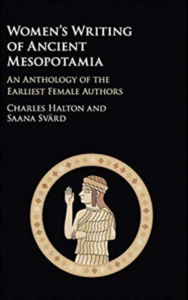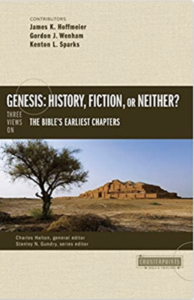 Download a discussion guide that accompanies A Human-Shaped God here: Discussion Guide for A Human-Shaped God
Download a discussion guide that accompanies A Human-Shaped God here: Discussion Guide for A Human-Shaped God
“Halton cuts incisively through the thickets surrounding our biblical understandings of God, frees them from our misconceptions, and puts them in service to serious, intelligible, and compelling theology. A Human-Shaped God is a gift to those who care about what kind of a God the Bible offers us.” —Jacqueline E. Lapsley, Dean and Vice President of Academic Affairs and Professor of Old Testament, Princeton Theological Seminary

“Bold and challenging, learned and instructive, this book is a must read for scholars of theology and biblical studies, yet it is readable for laypeople as well. At every step, Halton makes his surprising ideas lucid and accessible, and he constantly keeps their theological and ethical import at the forefront of his discussion. He synthesizes multiple fields of scholarship as wide-ranging as philosophy of cognition and biblical criticism, and he does so constructively and with aplomb.” —Benjamin D. Sommer, Professor of Bible and Ancient Semitic Languages, The Jewish Theological Seminary
“Lifting up questions and challenges surrounding God’s embodiment in Jewish and Christian religious traditions, Charles Halton presents a thoughtful account of humanity’s wrestling with shape, form, and divine presence.” —Oluwatomisin Oredein, Assistant Professor in Black Religious Traditions and Constructive Theology and Ethics; Director, Black Church Studies Program, Brite Divinity School
Women’s Writing of Ancient Mesopotamia presents fresh and engaging translations of works that were composed or edited by female scribes and elite women of the ancient Near East. These texts provide insight into the social status, struggles, and achievements of women during the earliest periods of recorded human history (c.2300–540 BCE). In three introductory chapters and a concluding chapter, Charles Halton and Saana Svärd provide an overview of the civilization of ancient Mesopotamia and examine gender by analyzing these different kinds of texts. The translations cover a range of genres, including hymns, poems, prayers, letters, inscriptions, and oracles. Each text is accompanied by a short introduction that situates the composition within its ancient environment and explores what it reveals about the lives of women within the ancient world.
The nature of the Genesis narrative has sparked much debate among Christians. This book introduces three predominant interpretive genres and their implications for biblical understanding.
Each contributor identifies their position on the genre or genres of Genesis, chapters 1-11, addresses why their interpretation is respectful of and appropriate to the text, and contributes examples of its application to a variety of passages.
The positions include:
- Theological History (Genesis can be taken seriously as both history and theology) – defended by James K. Hoffmeier.
- Proto-History (the early Genesis narratives consist of a variety of literary genres; which, nonetheless, do not obscure the book’s theological teaching) – defended by Gordon J. Wenham.
- Ancient Historiography (an understanding of Genesis that seeks to reconcile the limitations of its human authors with the nature of it being the Word of God) defended by Kenton L. Sparks.
General editor and Old Testament scholar Charles Halton explains the importance of genre and provides historical insight in the introduction and helpful summaries of each position in the conclusion.

